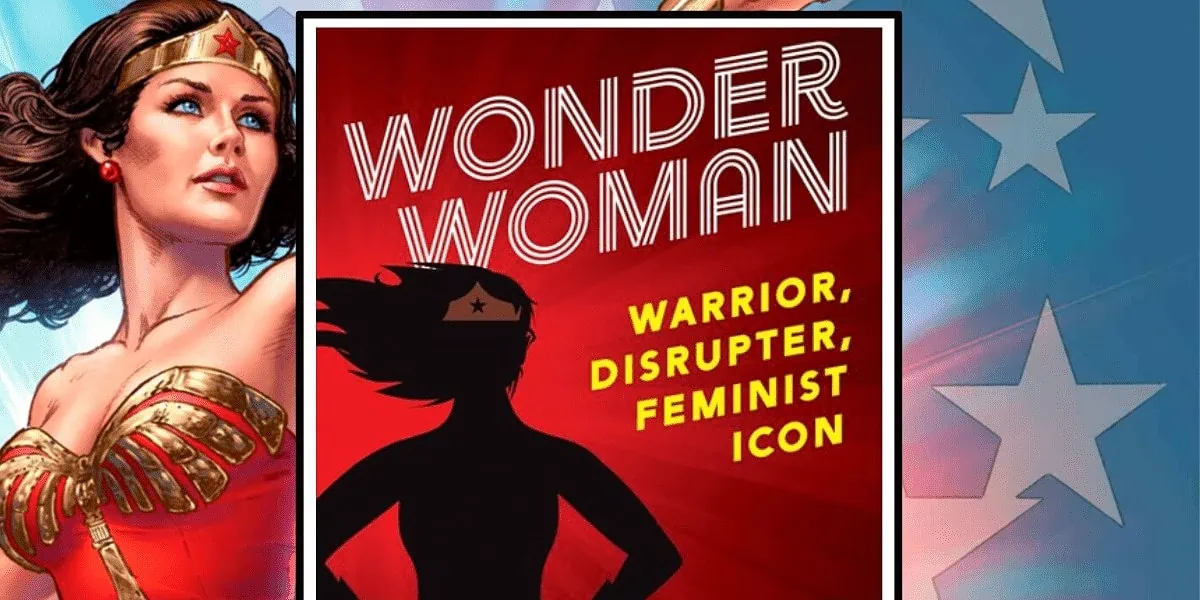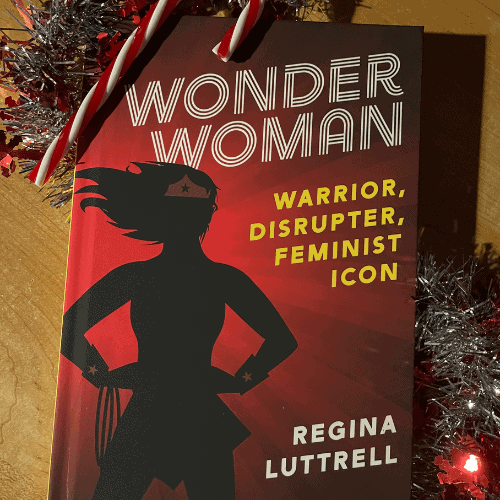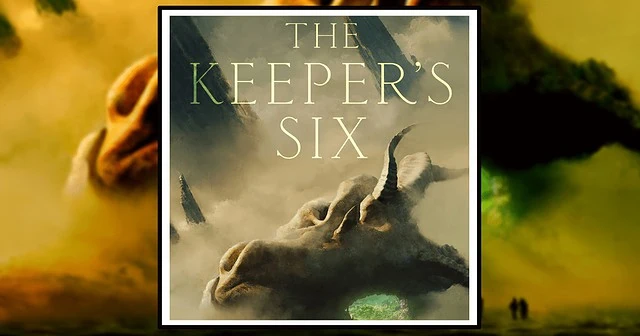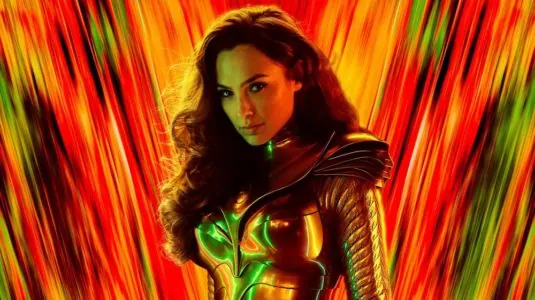Wonder Woman is, well, a wonder! Over 80 years old, she is the longest-running female comic book hero. While she has been rebooted and reimagined over the years, she has never been out of print for her entire 80-year lifespan. A hero of immense strength and even greater compassion, she is a unique icon that has become a symbol of the feminist movement. In Wonder Woman: Warrior, Disrupter, Feminist Icon, Regina Luttrell tracks Wonder Woman’s comic arc in tandem with feminism. It was interesting to see how both have changed and interacted over the years. It was something that I hadn’t thought about before but found fascinating.
[Note: While I am reviewing this book independently and honestly, it should be noted that it has been provided to me by Rowman and Littlefield for the purpose of this review. Warning: My review of Wonder Woman: Warrior, Disrupter, Feminist Icon contains some spoilers!]
Wonder Woman’s an ever-changing character
From her unlikely beginnings to her toned-down middle ages, to her modern resurgence, Wonder Woman has had some ups and downs. In the same way, the feminist movement has ebbed and flowed over the years. Luttrell talks about how Wonder Woman changed as different writers and artists took over her comics.
Interestingly, surges in the feminist movement were often coupled with a softening of Wonder Woman. Luttrell suggests that male writers and artists would force this impotence on Wonder Woman to reinforce the ideas they wanted to see in the real world. Just as Wonder Woman was created to empower women, she was also used to disenfranchise them.
Thankfully, in the latest wave of feminism (Luttrell identifies four waves of feminism, and we are currently in the fourth) Wonder Woman has again returned to her origins. She is allowed to be a powerful woman who uses compassion and love to rid the world of war.
Wonder Woman: Warrior, Disrupter, Feminist Icon is a dense book to read
Luttrell uses a lot of psychology to explain Wonder Woman. William Moulton Marston, created her along with his wife, Sarah Elizabeth Holloway, and his lover, Olive Bryne. All three of them were highly intelligent and spent their lives studying and researching psychology. Luttrell doesn’t explicitly say it, but she certainly implies that much of Marston’s work on Wonder Woman (and his research) was actually the work of Holloway and Bryne which he took credit for.
Martson is credited (again Luttrell casts shade on how much it’s his alone) with the DISC Theory of psychology. Luttrell goes into a great deal of detail about this theory and how it pertains to Wonder Woman. If you want all that, then read the book. But basically, it deals with different ways of interacting and the emotions associated with those interactions.
Marston (I will just use his name because that is historically who created Wonder Woman) argued that one style of interacting was “masculine” and one “feminine”. He also argued that the “feminine” way of interacting was superior. Marston created Wonder Woman to model “feminine” interactions for girls and boys. He hoped that by promoting this gentler way to interact he could change the world and bring about the end of war.
When Luttrell is speaking about Marston’s psychological theories, the book gets a little slow. I have a bachelor’s degree in psychology and I still had to go back and read a few sentences twice to really process them. While her theories about how his theories created Wonder Woman were fascinating, they will require attention and processing time for most readers.
Feminism and LGBTQ+’s connection to Wonder Woman
Luttrell presents Wonder Woman’s entire 80+ year character development. As she does, she talks about what was happening with the feminist movement and, later on, the LGBTQ+ community. It was interesting that Marston originally wrote Wonder Woman with clear bisexual characteristics. Especially interesting was that these storylines actually got printed in the forties.
Luttrell shares that it wasn’t until Marston stepped away from Wonder Woman that she became a more traditional female figure. Most people are unaware of Wonder Woman’s early sexual identity but the LGBTQ+ community is aware and Luttrell devotes some of her book to how important that representation is.
Wonder Woman has not always been a perfect icon for the feminist movement and Luttrell does not shy away from these shortfalls. She talks about how much Wonder Woman lost her way at times. But she keeps looking forward until modern times when Wonder Woman has once again become the role model that Marston intended her to be. Luttrell expresses hope that she will continue to be an icon for long into the future.
Fascinating additions at the end for Sarah Elizabeth Holloway and Olive Bryne
Luttrell has a few special additions at the end of her book. She includes excerpts from the unpublished memoirs of both Holloway and Bryne. She also includes interviews with the grandchildren of both women. These inclusions provide some fascinating insight into the often-overlooked creators and inspiration behind Wonder Woman.
“Tiddly Bits: The Tale of a Manx Cat” is Holloway’s unfinished and unpublished memoir. Holloway’s memoir only covers her and Marston’s early life together. It ends before Bryne is introduced to their family. While it’s unfortunate to not have her personal take on such an unconventional and challenging arrangement, it was interesting to see that even at that point she already was doing a great deal of Marston’s work without credit.
Holloway’s memoir is followed by an interview with her granddaughter, Christie Marston. Hearing about Holloway from someone who knew her as “gram” was fun and gave a very different perspective from history books.
Bryne’s (also unfinished and unpublished) memoir is at the back of the book as well. In a much longer excerpt than Holloway’s, Bryne shares memories of growing up in a stream-of-consciousness style. She is not shy about sharing personal information, including love affairs that would not have been accepted at the time! This isn’t completely surprising considering her arrangement with Marston and Holloway, but hearing it spoken about so frankly was surprising and refreshing.
After Bryne’s memoir comes a joint interview with two of her granddaughters, Nancy Marston Wykoff and Peggy Marston Van Cleave. The book finishes off with a notes section in case anyone wants to check on Luttrell’s sources or do further reading.
Wonder Woman: Warrior, Disrupter, Feminist Icon is not what I expected but still interesting
I have to admit that I was expecting a much fluffier book than the one I got here. I was thinking it would be an easy, coffee table, bathroom fodder type book, but Luttrell provided something much more substantial.
This book is not going to appeal to the casual reader. There is too much to process. The book is very interesting but it’s a more academic approach to Wonder Woman, which not everyone may appreciate. Anyone who is a big fan of Wonder Woman should appreciate this deep dive into her connections to feminism though. Those interested in feminism and the feminist movement will find the connections fascinating as well.
My Rating: 7/10
Wonder Woman: Warrior, Disrupter, Feminist Icon by Regina Luttrell is available now! Are you interested in reading it? Let us know on Twitter @mycosmiccircus or in The Cosmic Circus Discord. And if you haven’t already, check out our review of The Keeper’s Six!






